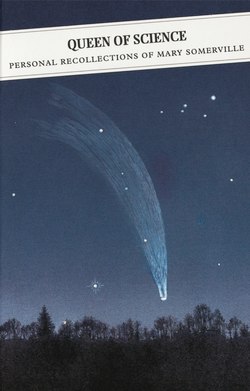Читать книгу Queen Of Science - Somerville Mary - Страница 10
На сайте Литреса книга снята с продажи.
LETTER FROM DR BLAIR TO MARY FAIRFAX
ОглавлениеMY DEAR MISS FAIRFAX,
This comes to return you a thousand thanks for the pleasure and entertainment I have had from your landscape paintings. I had them placed in the best light I could contrive in my drawing-room, and entertained myself a good while every day looking at them and admiring their beauties, which always grew upon me. I intend to return them to you to-morrow, or rather on the beginning of next week; and as they were taken particular care of, I hope they shall not appear to have suffered any injury.
I have exhibited them to several people, some of whom were excellent judges, whom I brought on purpose to view them – Lady Miller, the Solicitor and Mrs Blair, his lady, Dr Hill, Miss Anne Ker of Nisbet, and a variety of ladies. All joined in praising them highly. The penserosa figure caught the highest admiration of any, from the gracefulness of the figure and attitude, and the boldness and propriety of the scenery. The two morning and evening views – one of Lochness, and the other of Elcho Castle – which make fine companions, and which I always placed together, were also highly admired. Each of them had their different partizans, and I myself was for a good while undetermined which of them to prefer. At last, I found the placidity of the scene in Elcho Castle, with the cottages among the trees, dwelt most on my imagination, though the gaiety and brightness of the morning sky in the other has also exquisite beauty. On the whole, I am persuaded that your taste and powers of execution in that art are un-commonly great, and that if you go on you must excel highly, and may go what length you please. Landscape painting has been always a great favourite with me; and you have really contributed much to my entertainment. As I thought you might wish to know my sentiments, after your paintings had been a little considered, I was led to write you these lines (in which I assure you there is nothing flattering), before sending back your pieces to you. With best compliments to Lady Fairfax, believe me,
Your obliged and most obedient Servant,
HUGH BLAIR
ARGYLL SQUARE, 11th April (probably) 1796
A day or two after this a Mrs Ramsay, a rich proud widow, a relation of my mother’s, came with her daughter, who was an heiress, to pay us a morning visit. Looking round the room she asked who had painted the pictures hung up on the walls. My mother, who was rather proud of them, said they were painted by me. ‘I am glad,’ said Mrs Ramsay, ‘that Miss Fairfax has any kind of talent that may enable her to win her bread, for everyone knows she will not have a sixpence.’ It was a very severe hit, because it was true. Had it been my lot to win my bread by painting, I fear I should have fared badly, but I never should have been ashamed of it; on the contrary, I should have been very proud had I been successful. I must say the idea of making money had never entered my head in any of my pursuits, but I was intensely ambitious to excel in something, for I felt in my own breast that women were capable of taking a higher place in creation than that assigned to them in my early days, which was very low.
Not long after Mrs Ramsay’s visit to my mother, Miss Ramsay went to visit the Dons, at Newton Don, a pretty place near Kelso. Miss Ramsay and the three Miss Dons were returning from a long walk; they had reached the park of Newton Don, when they heard the dinner bell ring, and fearing to be too late for dinner, instead of going round, they attempted to cross a brook which runs through the park. One of the Miss Dons stumbled on the stepping-stones and fell into the water. Her two sisters and Miss Ramsay, trying to save her, fell in one after another. The three Miss Dons were drowned, but Miss Ramsay, who wore a stiff worsted petticoat, was buoyed up by it and carried down stream, where she caught by the branch of a tree and was saved. She never recovered the shock of the dreadful scene.
18 Mary Somerville’s note from the original edition: ‘Many people evidently think the science of astronomy consists entirely in observing the stars, for I have been frequently asked if I passed my nights looking through a telescope, and I have astonished the enquirers by saying I did not even possess one.’
19 Xenophon and Herodotus: it is perhaps worth remembering here that, although Mary Somerville speaks lightly of her achievement, she could have been no more than 16.
20 A note in the original edition reads: ‘Nasmyth told a lady still alive who took lessons from him in her youth, that the cleverest young lady he ever taught was Miss Mary Fairfax.’
21 Pleyel, Clementi, Steibelt, Mozart and Beethoven: all of these composers except Mozart were still living and working at this point and so music ‘in vogue’ was genuinely up to date.
22 The Gamester is a tragedy by Edward Moore (1712–57). Some admired passages are attributed to Garrick.
23 The Elegant Extracts (1789) were compiled by Vicesimus Knox (1752–1821). These were ‘useful and entertaining extracts’ generally for the use of youth. Knox was educated at St John’s College, Oxford; he also wrote Essays Moral and Literary (1778).
